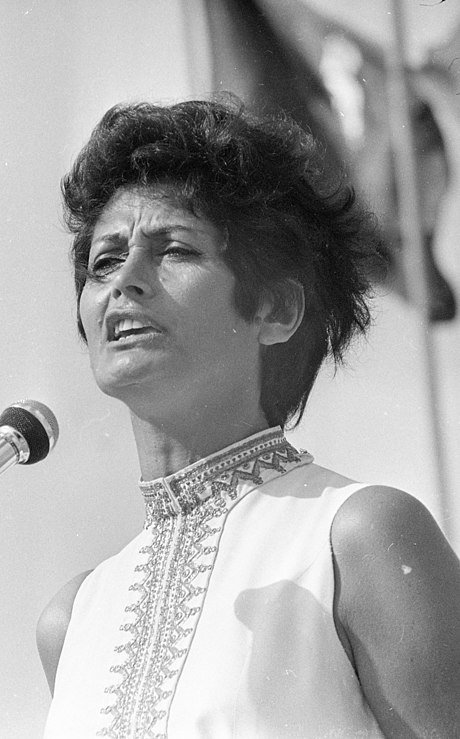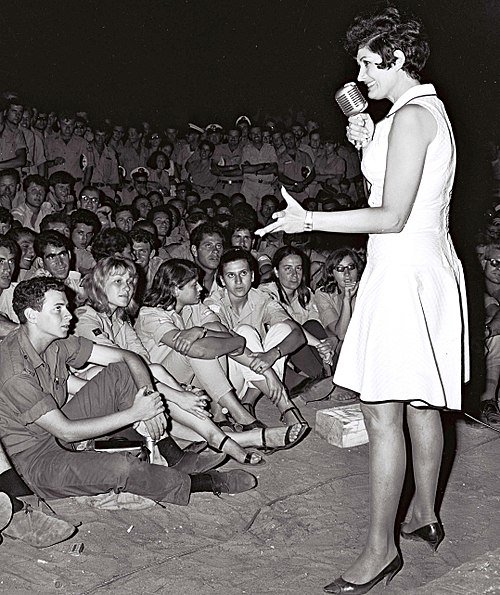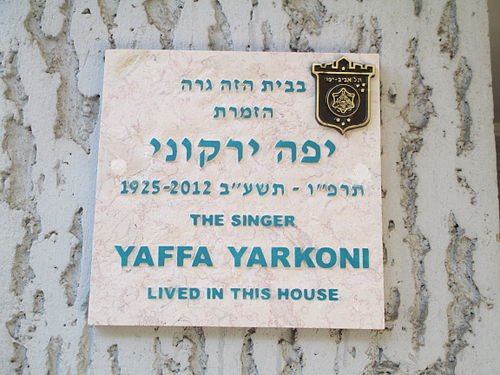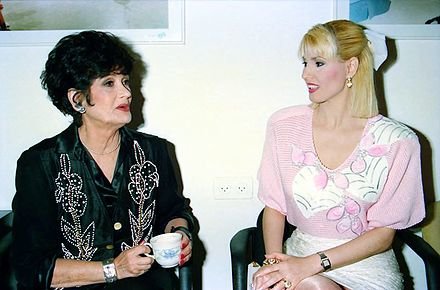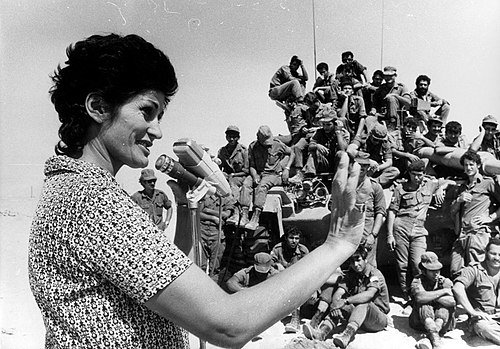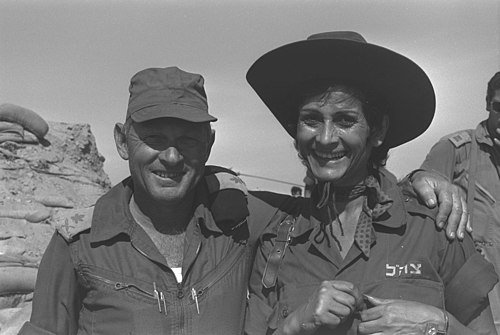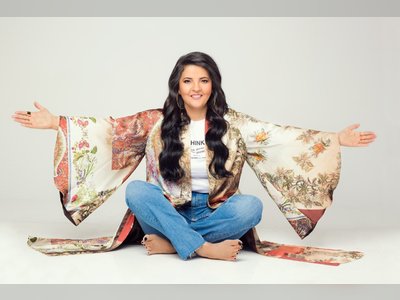Yaffa Yarkoni: A Journey through the Life of a Renowned Israeli Singer
Yaffa Yarkoni (December 24, 1925 – January 1, 2012) was one of Israel's prominent singers, recognized as the recipient of the Israel Prize for Hebrew Song in 1998. She was closely associated with the early days of the State of Israel and enjoyed immense popularity during the 1950s and 1960s.
Early Life
Yaffa Yarkoni was born as Yaffa Abramov in southern Tel Aviv to Malcha Alchasov and Abraham Abramov, a fabric and carpet merchant. Her parents were Jewish immigrants from Baku, now in Azerbaijan, who had come to the land of Israel during the early 20th century, settling in 1920.
Yaffa was the middle child in a family of three, with an older sister, Tikva (born in 1921), and a younger brother, Benjamin (born in 1927). When she was eight years old, her parents separated, with her father leaving for Rhodesia (where a Jewish community resided), leading the family into financial hardship.
In the 1930s, Yaffa and her mother and brother moved to Givat Rambam (now a neighborhood in Givatayim), where her mother opened a cafe-restaurant named "Tzalil," which gained popularity, particularly among security personnel and artists.
Yaffa's artistic journey began at a young age when she performed with her sister and brother at the family cafe in Givat Rambam. The trio, known as "Bamati" (an acronym of the family members' names), comprised Tikva as the singer, Yaffa as the dancer, and Benjamin as the pianist.
They achieved success in cafe performances, catching the eye of actor and singer Shmuel Fishman, who recommended Yaffa for classical dance lessons at Gertrude Kraus's studio.
There, she also learned to play the piano. A few years later, she joined Kraus's dance troupe and, shortly thereafter, became part of Kraus's renowned dance ensemble, which performed alongside the Eretz Yisrael Folk Opera. Yaffa danced with the troupe for 12 years until a leg injury forced her to abandon her dance career in 1945.
On September 21, 1944, she married Yosef Gustein, originally from Lutsk, Poland (now in Ukraine). Gustein, born in 1918, was a member of the youth movement "Gordonia" in his hometown and immigrated to Israel in 1938, later joining the core group that founded Kibbutz Neve Yam.
Yaffa and Yosef met two years before their wedding, and shortly after their marriage, Yosef volunteered for the British Army (during World War II) and was attached to the Jewish Brigade along with his friends.
Tragically, Yosef Gustein was killed on March 29, 1945, in action on the Senio River in Italy. The song "Uri," performed by Yaffa Yarkoni, was written in his memory by Raphael Katchko, with music composed by Yitzhak Moron. In 1945, Yaffa and her family changed their surname to "Gustein" in honor of their fallen son-in-law.
At the end of 1947, Yaffa joined the Haganah organization as a wireless operator and continued to do so during the outbreak of the War of Independence as part of the Givati Brigade. Her first experience as a singer was with the "Hishratron" band of the brigade, which was established during the war, and she joined it at the recommendation of actor Raphael Katchko. Yaffa sang songs for the band, including "Don't Tell Me Hello," "Shaharhoret," and "Kara Ze Rak Hapa'am." Two songs she performed during this time became symbols of the tough war years: "Ha-Amini Yom Yavo" (Believe, the Day Will Come), which was particularly moving when she sang it in front of the unit she accompanied to Jerusalem, and "Ba'ab El Wad," written by Chaim Guri in memory of the fallen soldiers shortly after the battles ended.
In 1948, she married Shaike Yarkoni. Shaike Yarkoni, born in Tel Aviv in 1920, was the son of Moshe Yarkoni (Shchupak), one of the directors of the Underground, who was imprisoned by the British for two years in the Latrun camp. He was also one of the founders of the Jewish Settlement Police (and later one of the "Heroes" of the unit, which was a factor in Amos Ben-Gurion's defamation lawsuit against the organization "Shurat Hamitnadvim"). The couple had three daughters. Shaike Yarkoni passed away on August 29, 1983.
Musical Career
With the establishment of the State of Israel, during the tumultuous days of the War of Independence, Yaffa recorded a significant hit in the "Radio Doctor" studio. One of her most notable songs, "Einayim Yerukot" (Green Eyes), emerged from this recording, considered one of the earliest pop songs in Israel. Subsequently, Yaffa signed with the newly established Hed Artzi record company, where she recorded many albums. She recorded the album "Ba'ab El Wad," composed of songs from the War of Independence, including "Ha-Amini Yom Yavo," which she had performed during the war, as well as "Rabotei HaHistoria Chozeret" (Our History Teacher Returns), "Hapinjan" (The Pawnshop), "Hen Efshar" (Yes, It's Possible), "Dudu," and "Yatzanu Et" (We Left Slowly). These songs became more closely associated with her than with the Chizbatron, the original performers of the songs. In 1951, she recorded a successful album featuring dance songs.
During the 1950s and 1960s, Yaffa Yarkoni became a leading singer in Israel, with a focus on national songs she recorded in 1948: "Be'arvot Hanegev" (In the Negev Desert) with lyrics by Raphael Katchko and "Hasavta Banegev" (The Grandmother in the Negev) with lyrics by Avshalom Cohen.
These songs were widely played on the "Kvakeshet Leshirim Ivriyim" (Request for Hebrew Songs) program on Kol Yisrael. However, her greatest success came from the salon songs she recorded during that period, including waltzes and tangos, which also served as background music for dances in coffeehouses of the era.
In 1959, she released the album "Nirkoda Im Yaffa Yarkoni," featuring numerous salon songs associated with her, including "Chavibi" (My Dear), "Artzenu Haketantonet" (Our Tiny Land), and "Shaharhoret." Yaffa was sometimes erroneously pitted against another popular singer of the time, Shoshana Damari, with whom she collaborated on several occasions.
In the 1950s, Yaffa recorded several children's albums, two of which were particularly successful: the album "Shirei Yeladim Kavakeshatcha" (Children's Songs as You Requested) from 1953, which included the children's song "Agala Im Susa" (A Cart with a Horse), written by Avshalom Cohen and originally recorded in 1948, and "Duvon Yembo" (Duvon Jembo), written by Yechiel Mohar. In 1957, she released the album "Shirim Mechinorot" (Songs from the Water Wells), dedicated to songs written by Naomi Shemer for the Kinneret Group.
The album introduced Shemer to a wider audience, featuring songs such as "Hadvar Ba Hayom" (The Mail Arrived Today) and "Achino Haktan" (Our Little Brother). Yaffa also recorded holiday songs for children and additional songs that became hits for kids, including "Aba Sheli" (My Dad), written by Talmah Eligon.
In the 1965 Festival of Song and Chorus, Yaffa Yarkoni won first place with the song "Eyalat Hachan" (The Graceful Gazelle), which was also performed in the festival by Arik Einstein. The song featured lyrics by Oded Betzer, music by Nathan Shahar, and arrangement by Yitzhak Graziani.
A year later, in the 1966 Festival of Song and Chorus, she won again with the song "Lail Stav" (Autumn Night), which was also performed by Arik Einstein. The song featured lyrics by Haya Cohen, music by Haim Tzur, and arrangement by Shimon Cohen.
During the 1960s and 1970s, Yaffa Yarkoni performed in prestigious venues and clubs around the world, particularly in the United States, London, and Paris. She appeared at Carnegie Hall and Lincoln Center in New York, Olympia in Paris, and Palladium in London, as well as in Japan, Australia, and Russia. In the 1960s, she spent four years in the United States and recorded three albums while performing extensively. In Paris, she met Bouz Zrarbi, who was performing there at the same time, and recorded his song "Pamela" for the first time.
Yaffa Yarkoni's career spanned decades, and her contribution to Israeli music was immeasurable. She left a lasting legacy of songs that continue to be beloved by generations of listeners. Her life story is a testament to her resilience and dedication to the arts, making her an enduring figure in the cultural history of Israel.
- יפה ירקוניhe.wikipedia.org
